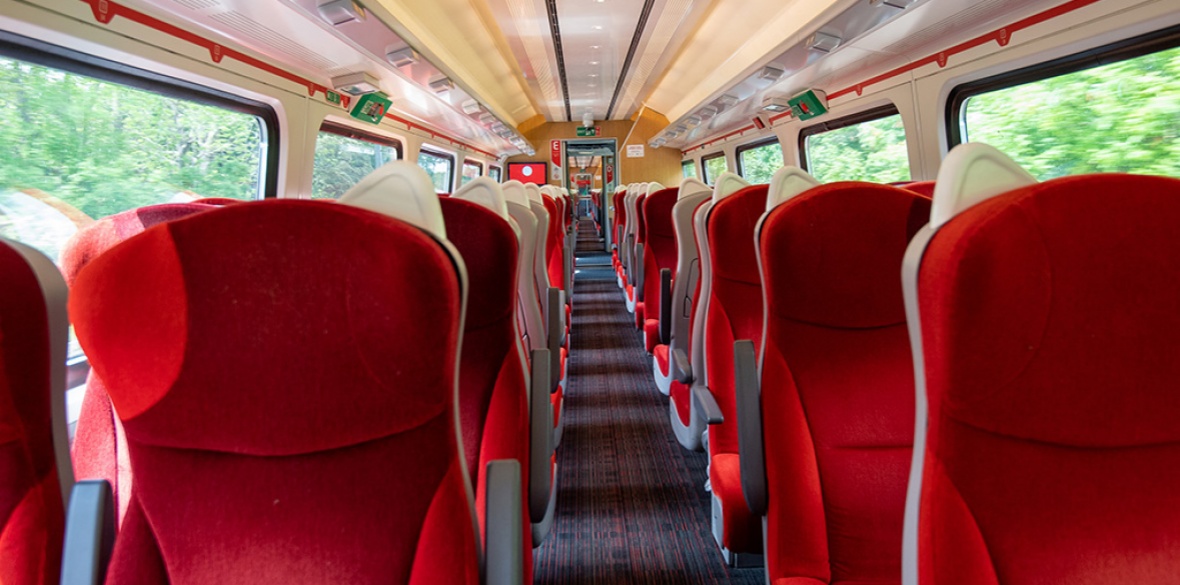This is the last article you can read this month
You can read more article this month
You can read more articles this month
Sorry your limit is up for this month
Reset on:
Please help support the Morning Star by subscribing here
ON MARCH 23 2020, the Tory government — yes that’s right, those ideological champions of privatisation and the invisible hand of the market — took “temporary” control of our railways.
The arrangement in March was set to last for six months, but it’s now clear that the old franchising business as usual simply won’t work. Guaranteed payouts to shareholders regardless of how rail services were run were a complete scandal and must never be allowed to return.
Throughout the pandemic, our railways are keeping vital services running to get our key workers to where they need to be and safely home again and to ensure food supplies and medicines get to our shops and pharmacies — clearly showing just how essential they are to our well-being.
But back to privatisation. Let’s recap the “highlights.”
Railroaded through in the dying days of the Tory government of the 1990s, in a dogged determination to privatise everything in sight, they sold off our world-beating railways.
What did we get in return? The woeful and ultimately doomed track and infrastructure privatisation outfit Railtrack, probably one of the worst failures of privatisation and one which led to major rail crashes with devastating consequences.
Sadly, safety wasn’t Railtrack’s forte. It wasn’t until after the Hatfield disaster that Railtrack was eventually wound up in 2001 – but not before using taxpayers’ money to give a massive £137 million dividend to its shareholders.
Then there was a succession of private train operators who saw big bucks but kept coming cap-in-hand for more of our money. Even when “operators of last resort” (essentially, public ownership) kicked in for services on the East Coast Mainline and proved a great success, the Tories still insisted on pushing them back into private hands.
Passengers have endured horrendous service failures — notably on Southern and Northern in recent years — and the most expensive train fares in Europe, with eye-watering annual fare rises. An Anytime Return ticket from Euston to Manchester Piccadilly can cost £360 for one return journey in standard class.
Add to this what is arguably the most complicated ticketing system in the world, and you really do have to wonder where the “improvements of the market” really come in.
This isn’t about getting nostalgic for the “good old days” of British Rail, but it’s no secret that our union has backed public ownership of our railways for over a century. Why?
It’s more efficient, it’s cheaper, it’s safer and it’s easier to manage. It’s better for our passengers, our rail workers and for our taxpayers. It really is a no-brainer. And our railways in public hands must be used to get people and freight off our roads to help tackle climate change while generating thousands of skilled jobs in the process.
So where are we now? The current “temporary” situation isn’t proper public ownership, more like government stewardship while the operators hope to step back into cushy contracts when things get back to normal, whatever that looks like.
But with ridership still languishing at around 15-20 per cent of the last year’s levels, fare revenue and the old normal doesn’t look like returning any time soon.
The current emergency measures arrangements are due to come to an end in mid-September, the same month that the long-awaited Williams review is now due and is widely expected to end franchising. But what will replace it? Adding to recent speculation, the Office for National Statistics has moved to “technically” reclassify our railways, putting them back on the government balance sheet in its latest publication.
And that is where they must remain. It’s simply unacceptable to continue lining the pockets of private operators, allowing shareholders to keep a two per cent profit margin and lavish salaries for board members, while you — our taxpayers — foot the bill. I wrote to the Transport Secretary seeking clarification last week, but I’m yet to receive a response.
We urgently need a reboot of a system which has for far too long been rigged so that — heads or tails — the privateers always win. Public ownership of our railways will cure this and make sure our trains are run properly, for people not profit.
And so it is that this Tory government has the opportunity — backed up with robust reasons and evidence — to reverse the disastrous privatisation of a previous one by bringing our railways back to where they belong — into public ownership.
Manuel Cortes is general secretary of the Transport Salaried Staffs Association (TSSA)











